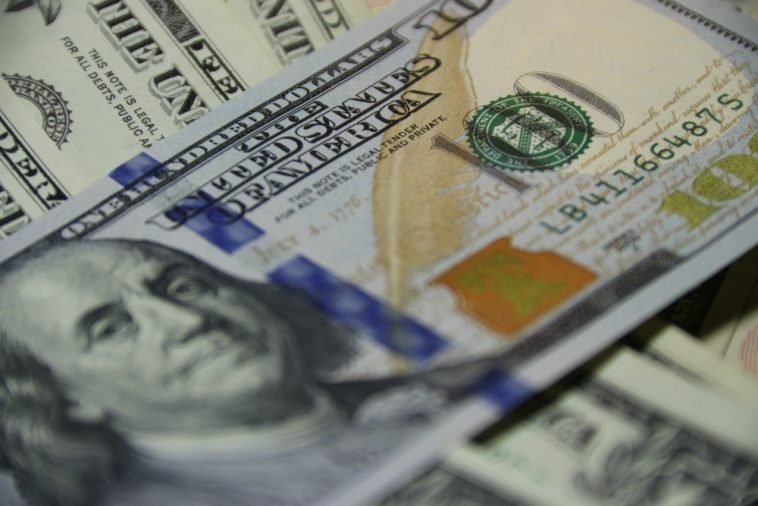Introduction.
Receiving money from abroad in Nigeria is a situation many of us find ourselves in, whether it’s from family members, friends, business transactions, or even freelance work.
As the world becomes more connected, it’s essential to know how to get money from overseas quickly and safely.
If you’ve ever been in a situation where someone is sending you funds from another country, you know that navigating the process can sometimes be a bit tricky.
There are a lot of ways to receive money internationally, and each option has its pros and cons depending on the amount, the sender’s location, and how quickly you need access to your funds.
The last thing you want is to feel stuck or confused when you’re expecting money, especially in times of need.
In this post, I’ll walk you through the most popular methods for receiving money from abroad in Nigeria, the pros and cons of each, and give you tips on how to make sure the process is as smooth and safe as possible.
How Do I Receive Money From Abroad in Nigeria?
Before diving into the methods, it’s important to understand the general process of receiving money internationally.
First, the sender will need to choose a payment platform, bank, or money transfer service.
Once they send the money, it typically takes a few minutes to a few days for you to receive it, depending on the method they use.
Here’s a quick overview of some of the most common ways to receive money from abroad in Nigeria:
1. Bank Transfers
This is one of the most common and reliable methods for receiving money from abroad. If the sender uses a bank transfer, your funds will be sent directly into your Nigerian bank account.
- How it works: The sender will need to know your bank account details, including the account number, your bank’s name, the SWIFT/BIC code, and other specific details depending on their bank’s requirements.
- Speed: Bank transfers typically take between 1-5 business days, depending on the bank and country of the sender.
- Fees: There might be fees on both ends – the sender’s bank and the receiving bank might charge for the transfer.
- Pros: It’s secure and reliable. You don’t need to do anything except provide the right bank details. Plus, the money goes straight into your bank account.
- Cons: It can be slow and expensive, especially if the sending country uses a different currency or if the bank charges high international fees.
2. Money Transfer Services (Western Union, MoneyGram, etc.)
For quicker transfers, money transfer services like Western Union or MoneyGram are great options. These services allow your sender to send funds online or from an agent location, and you can pick up the money in cash at a local agent location in Nigeria.
- How it works: The sender goes to a Western Union or MoneyGram location, or uses their online platform, to send money. You’ll need to visit a local agent with an ID to collect the cash.
- Speed: Transfers are typically completed within minutes, especially if the sender uses an online platform.
- Fees: Fees for money transfer services depend on the amount being sent and the countries involved. Typically, sending larger amounts can result in higher fees.
- Pros: Very fast, and you can receive cash in hand in most cases. It’s easy to use, and there’s a network of agent locations across Nigeria.
- Cons: You’ll need to go to a local agent to pick up the cash, and the fees can sometimes be high. Additionally, there may be exchange rate markups that make the transaction more expensive.
3. Online Payment Platforms (PayPal, Payoneer, etc.)
With the rise of digital payments, online platforms like PayPal and Payoneer have become popular ways to receive money from abroad. These services are great for receiving small to medium amounts, especially if you’re doing freelance or business work.
- How it works: The sender sends money to your PayPal or Payoneer account using just your email address or username. You can then withdraw the money into your Nigerian bank account or use the funds to make online purchases.
- Speed: Transfers can take anywhere from minutes to a few hours depending on the payment method chosen.
- Fees: Both PayPal and Payoneer charge fees for transfers, especially when converting currencies. PayPal also has a fee for receiving payments internationally.
- Pros: You don’t need to leave your home to receive the money, and the process is simple and quick.
- Cons: The exchange rates aren’t always the best, and withdrawal fees can be high. PayPal is also not available in all parts of Nigeria, and some people find it difficult to link their Nigerian bank accounts.
4. Cryptocurrency (Bitcoin, Ethereum, etc.)
Cryptocurrency is becoming an increasingly popular method for transferring money, especially for people in countries where traditional financial systems are not easily accessible. If you’re familiar with Bitcoin, Ethereum, or other digital currencies, this might be a good option for you.
- How it works: The sender transfers cryptocurrency to your digital wallet. You can then either hold onto the cryptocurrency or convert it into Nigerian Naira through a local exchange.
- Speed: Crypto transactions can happen within minutes or hours, depending on the network’s congestion.
- Fees: Cryptocurrency transactions have a network fee that varies depending on the type of coin and network usage at the time of the transaction.
- Pros: Crypto is fast and can bypass traditional banks, meaning you avoid certain fees. It’s also becoming more widely accepted in Nigeria.
- Cons: Converting cryptocurrency to Naira can be tricky and may come with exchange rate issues. Additionally, not everyone is comfortable using crypto, especially given its volatility.
5. Mobile Money and Other Digital Wallets (Skrill, WorldRemit)
Mobile money is another convenient option, especially if you prefer digital wallets like Skrill, WorldRemit, or other money transfer apps. These platforms allow you to receive money directly to your mobile phone or wallet.
- How it works: The sender uses an app to send funds to your account. You’ll then receive a notification on your phone and can choose how to withdraw the funds.
- Speed: Transfers are usually instantaneous or take just a few minutes.
- Fees: These services may have low or no fees depending on the amount you are receiving, but there may be currency conversion fees.
- Pros: Super convenient and fast. You can receive money directly on your phone or wallet and withdraw it from ATMs or agent locations.
- Cons: You may be limited to certain platforms or local agents, depending on where you are in Nigeria.
Things to Keep in Mind
While receiving money from abroad sounds easy, there are a few important things to be aware of to make sure the transaction goes smoothly:
- Exchange rates: Make sure you understand the exchange rate, as this can impact how much you actually receive.
- Security: Only share your details with trusted sources. Be cautious of scams, especially when receiving money from people you don’t know.
- Documentation: Some services require you to provide identification, so always have your ID handy when picking up funds or receiving them online.
FAQs
Q: What’s the fastest way to receive money from abroad in Nigeria?
A: The fastest way would likely be through money transfer services like Western Union or online payment platforms like PayPal. These can deliver funds in minutes.
Q: Can I receive money in Nigeria from PayPal?
A: Yes, but you may need to link your PayPal account to a Nigerian bank, and withdrawal fees might apply. PayPal is not available for all Nigerians, so it’s important to check availability.
Q: Are there limits on how much money I can receive from abroad in Nigeria?
A: Yes, there are limits depending on the method you use. Bank transfers usually have higher limits, while services like PayPal may have lower limits for international transfers.
Conclusion
Receiving money from abroad in Nigeria can be simple and quick once you know your options. Depending on your needs – whether you’re after speed, low fees, or convenience – there’s a method out there for you.
Whether you’re receiving payment for freelance work, family support, or business transactions, understanding the different services can save you time and money.
Have you ever received money from abroad before? Which method worked best for you?





GIPHY App Key not set. Please check settings